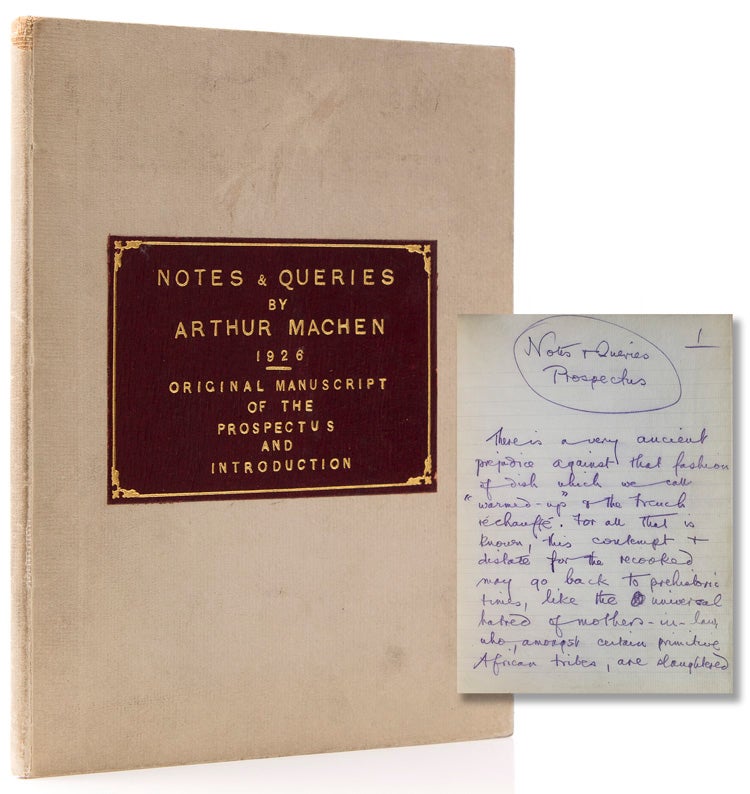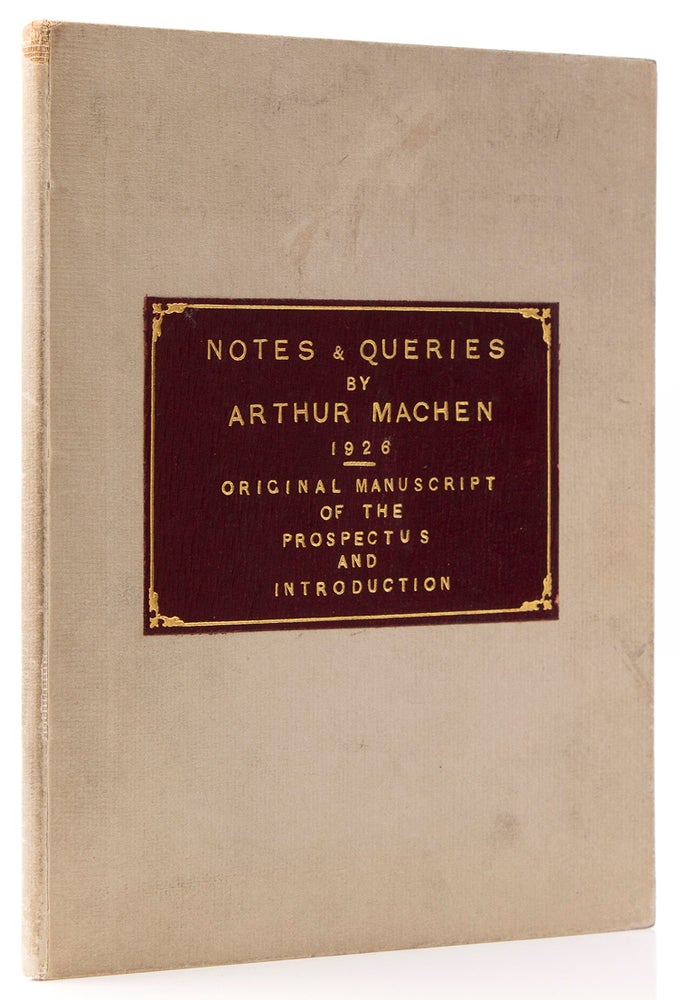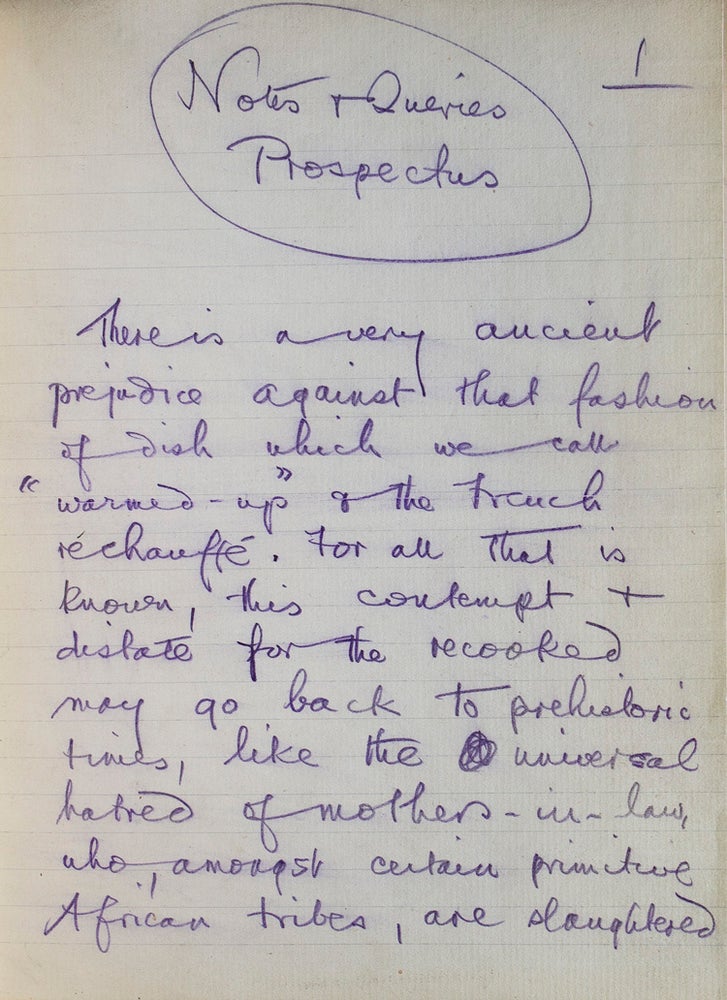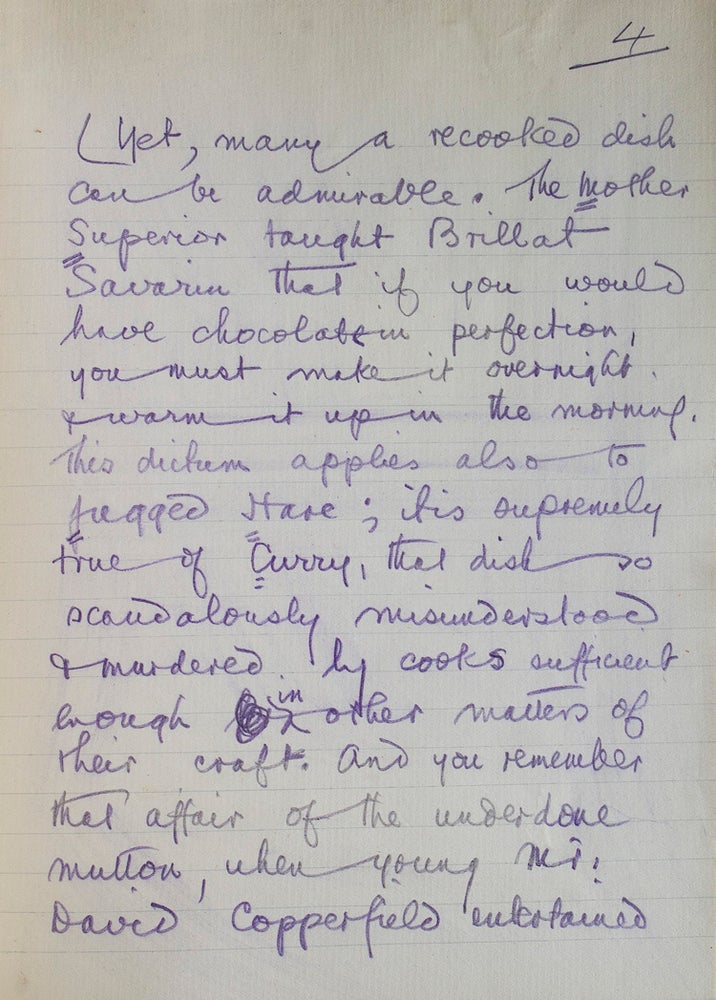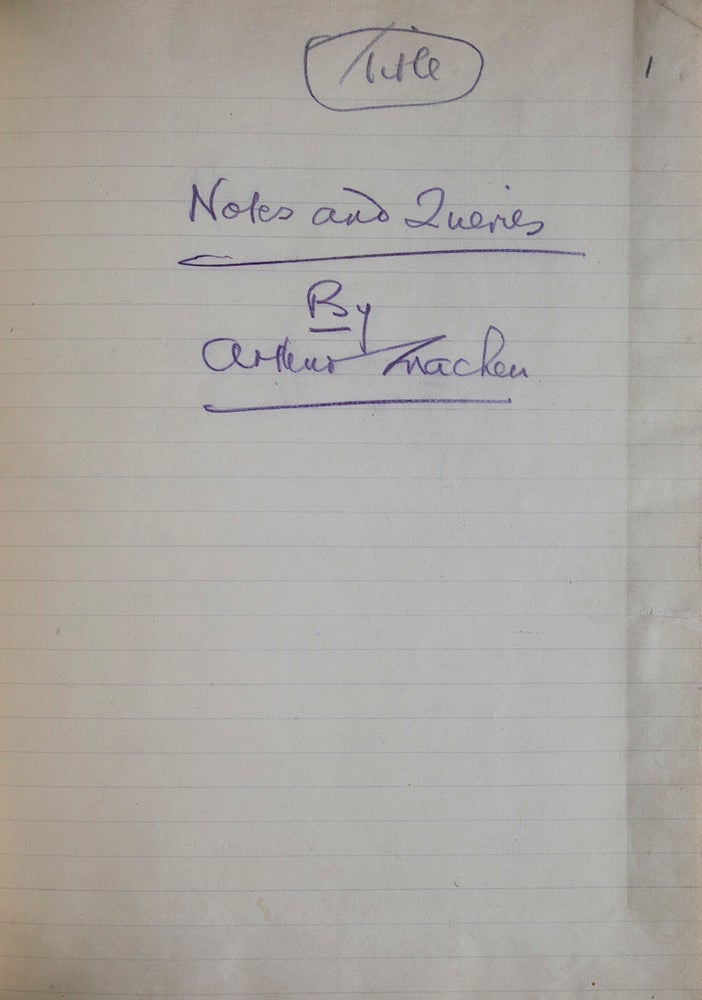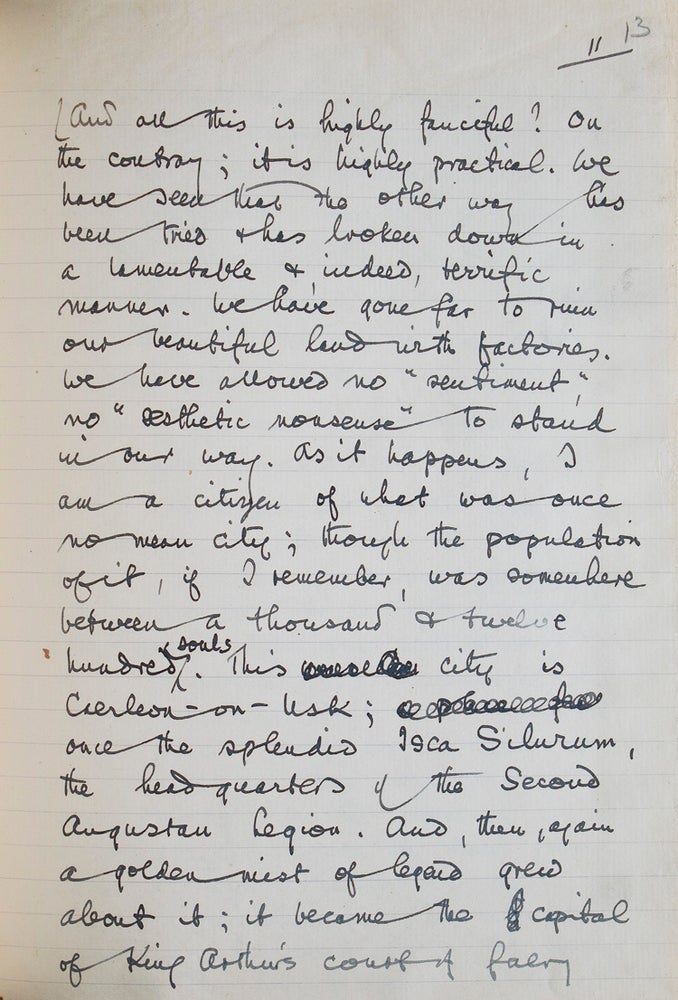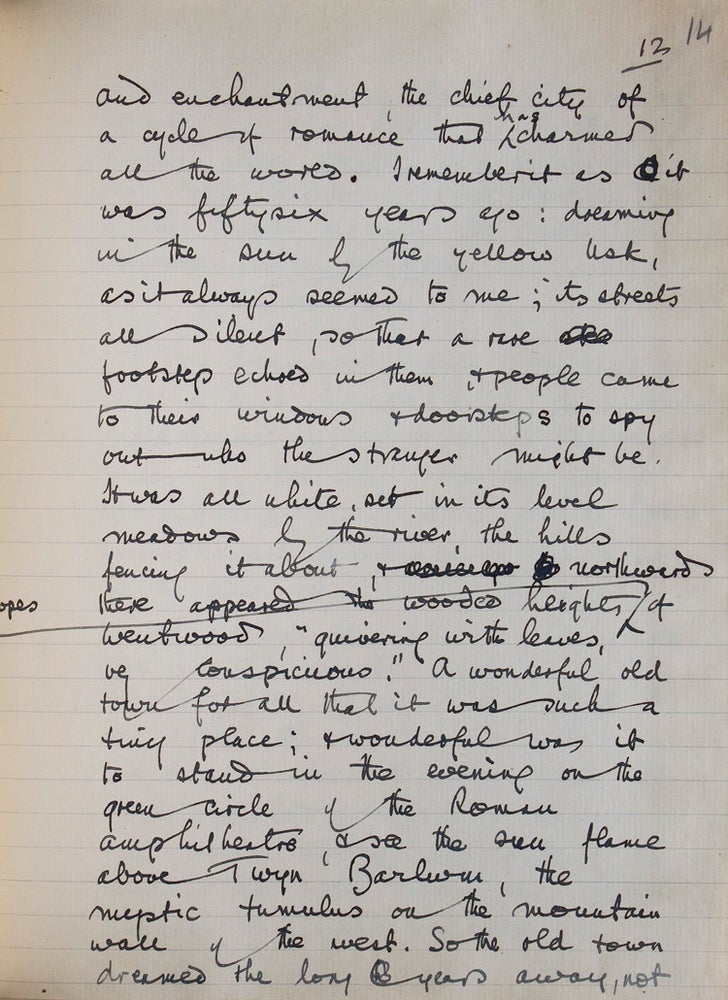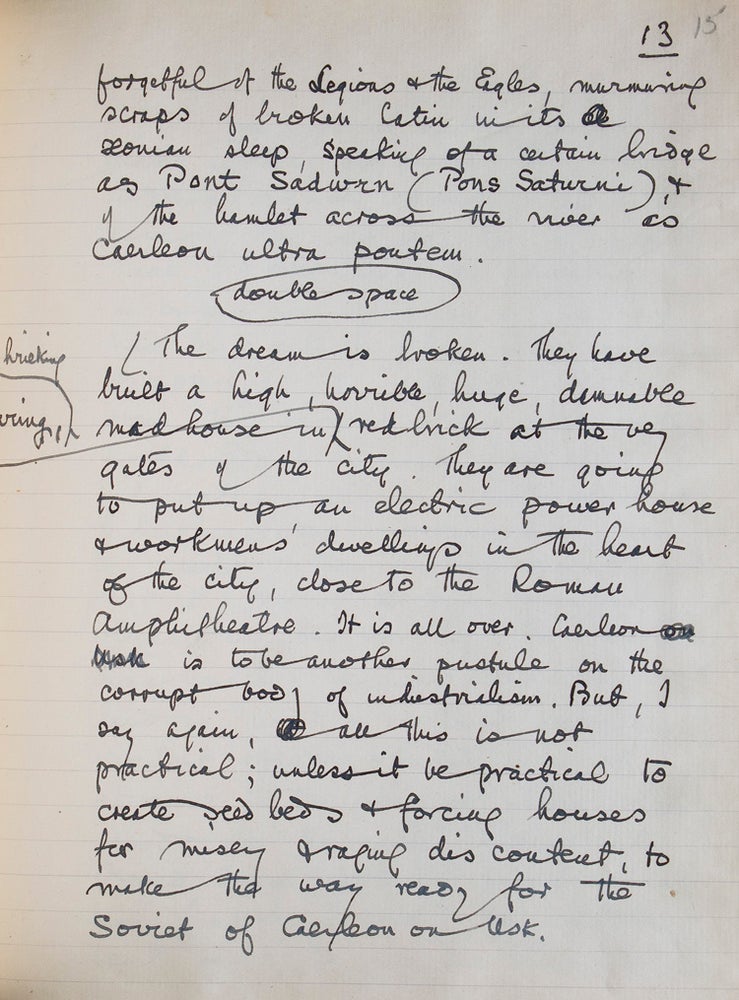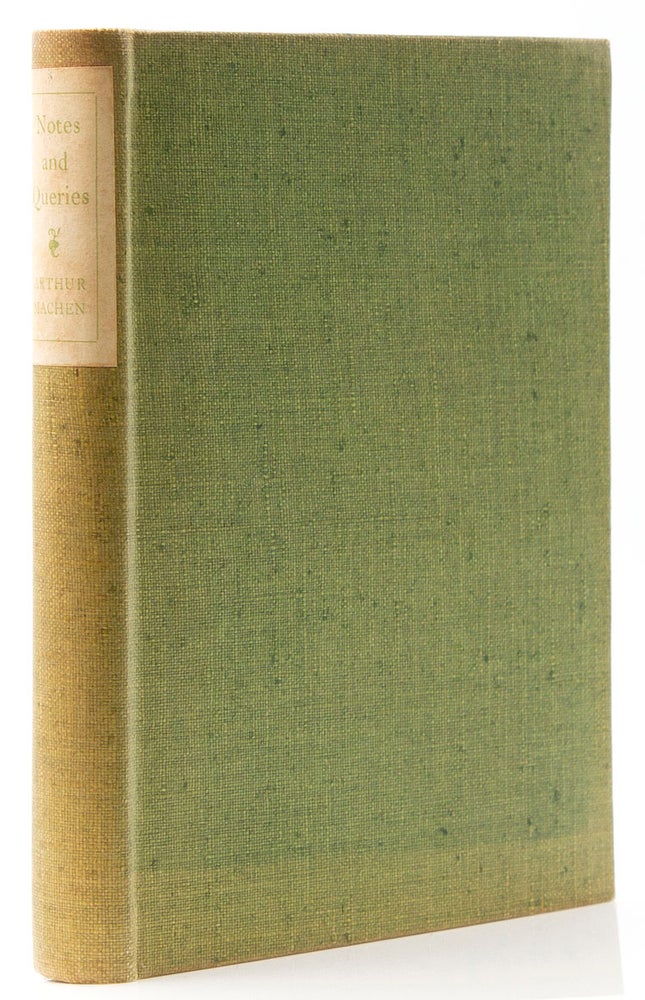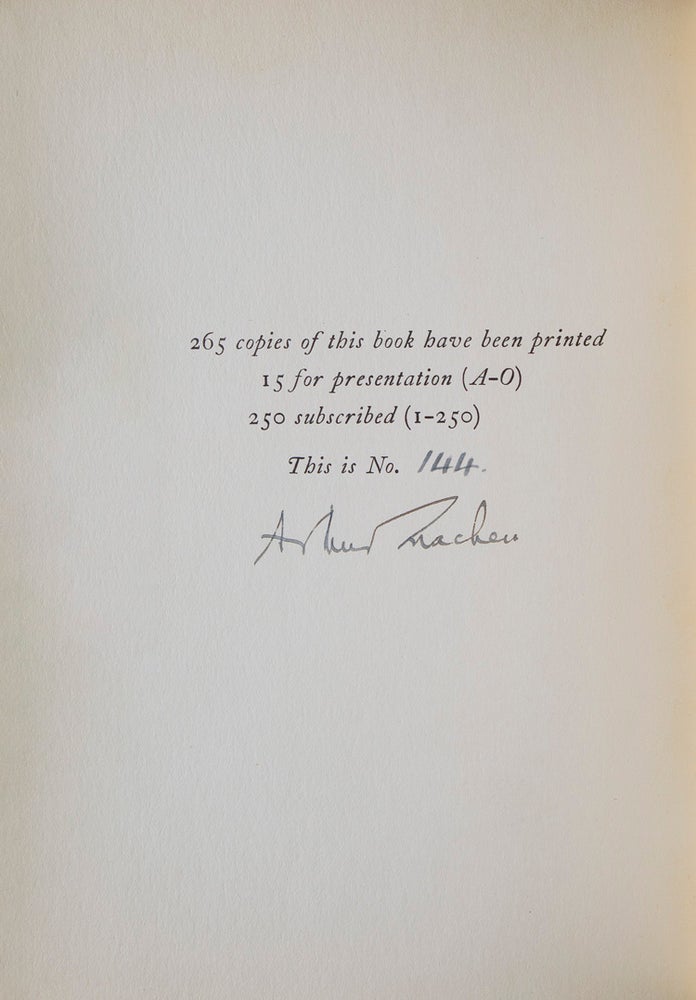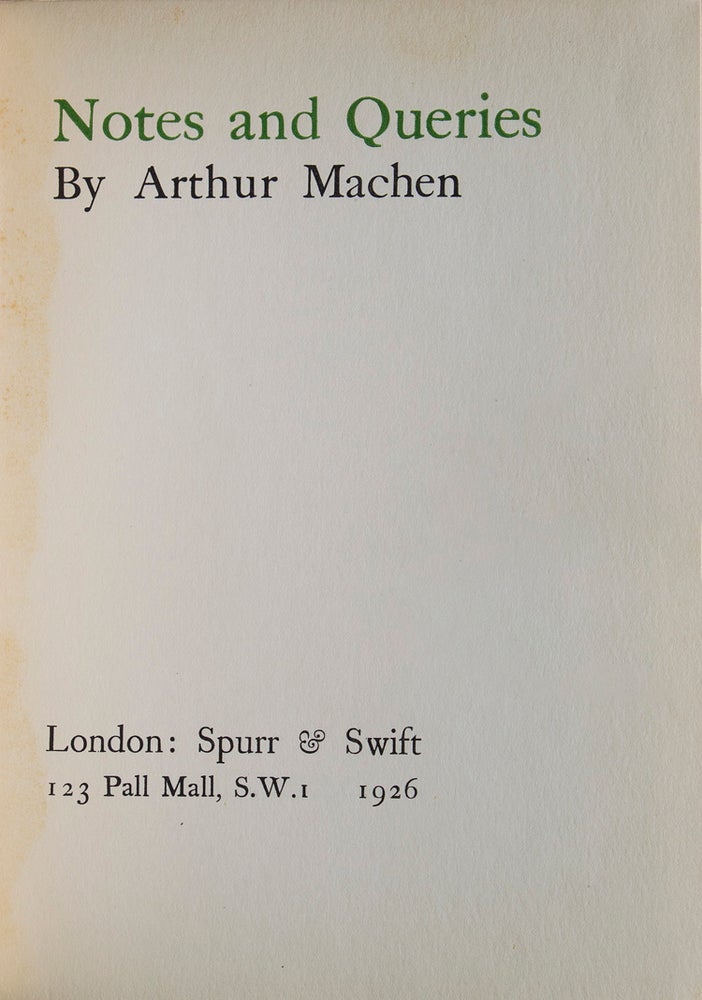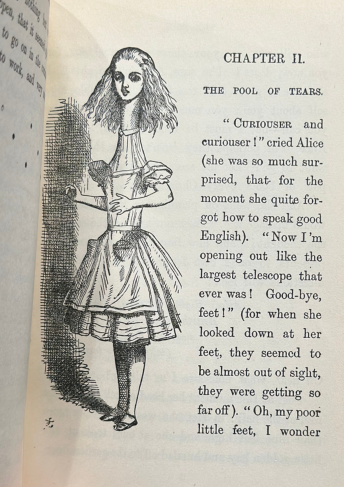Autograph Manuscript, signed (“Arthur Machen”), of the “Prospectus” Introduction to his collection of essays, Notes and Queries.
[St. John’s Wood, London: 1926].
Price: $5,000.00
About the item
Published by Spurr & Swift in 1926, in an edition of 265 copies signed by the author. Prospectus, 6 pp., Introduction, 20 pp., each with numerous corrections in Machen’s hand. 1 vols. 4to. Boards, gilt label to upper cover. Fine. With a copy of the published book, in green cloth, t.e.g. (spine toned).
Item #314722
A choice and lengthy Machen holograph manuscript from the middle 1920s, at the apogee of his celebrity, in which he looks back at some of the ideas from his journalism published in T.P.’s Weekly in 1908-9, and at the young man who wrote on Celtic Magic, Guinevere and Lancelot, England and Revolution, and the Holy Graal. “They are about all sorts of matters: Mr. Wells, as lively then as he is now … the obscure interests and superstitions of men … the everlasting question of the moth and the flame; and so on.” Machen displays wit in his discussion of the “warmed-up dish” in the prospectus for a collection of essays. The Introduction is signed (“Arthur Machen”) on the title leaf of the manuscript.
Elsewehere, more evocatively, and despairingly, Machen writes about the landscape that informed The Hill of Dreams (1907): “As it happens, I am a citizen of what was once no mean mean city; though the population of it, if I remember, was somewhere between a thousand and twelve hundred souls. This city is Caeleon-on-Usk, once the splendid Isca Silurum, the headquarters of the Second Augustan Legion. And, then, again a golden mist of legend grew about it; it became the capital of King Arthur’s court of faerie and enchantment, the chief city of a cycle of romance that has charmed all the world I remember it as it was fifty-six years ago … The dream is broken. They have built a horrible, huge, damnable mad-house in blaring, shrieking red brick at the very gates of the city. … It is all over. Caerleon is to be another pustule on the corrupt body of industrialism. But, I say again, all this is not practical; unless it be practical to create seed-beds and forcing-houses for misery and raging discontent, to make the way ready for the Soviet of Caerleon-on-Usk.”
A substantial, legible, and well preserved manuscript recording “the sense of a great loss” which Machen considered to be at the root of Celtic magic, and, perhaps, of his own magic.

